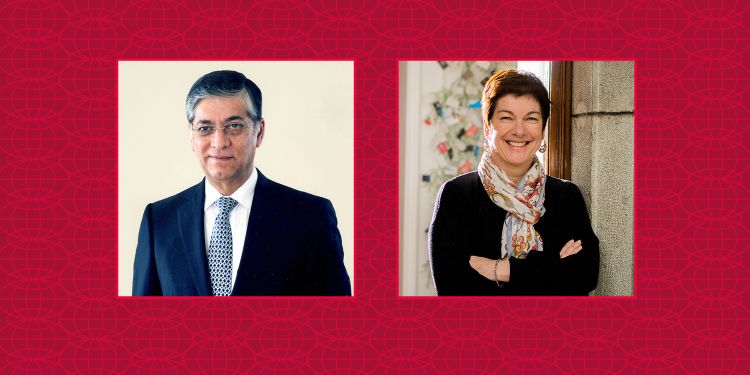Creating Emerging Markets Sustainability Series – Reducing Plastic Pollution on a Global Scale
Cover image features Anand Burman (left) and María Emilia Correa (right).
A recent article in the Boston Globe describes the disheartening reality of plastic recycling in the United States. According to author Veronique Greenwood, both nonprofits and government organizations such as the Department of Energy estimate that “only 5 percent of plastic items disposed in the United States are recycled at all; the rest are burned up or go into landfills.” Such low rates can be attributed to the design of most plastics, which severely limits options for recycling when compared to other materials such as paper and glass.
Solutions include altering the design of plastics, or more simply investing in the use of materials that are more recyclable to begin with. Some U.S. companies have started to invest in the latter option as part of their sustainability commitments, but how can businesses reduce their use of non-recyclable plastics on a global scale? The CEM project has interviewed leaders of businesses and NGOs from emerging markets who outline their strategies to transition away from plastics and towards more sustainable materials. The two interviews featured below frame the issue from different perspectives as they discuss the point of view of consumers as well as that of business leadership:
- María Emilia Correa is the co-founder of Sistema B, a non-profit organization started in Latin America which seeks to holistically redefine business success by certifying “B Corporations” that commit to meaningfully incorporating social and environmental concerns to their bottom lines. Correa delineates ways to reduce plastic usage in industry from the consumer’s point of view, arguing that our economic decisions play a significant role towards enacting system-wide change.
“What is happening today is really interesting: we are all worried about the plastic in the oceans. We’ve got many options –we can protest or do a number of things–, but the fascinating development is that we are turning to the market to stop buying plastic bags […] The market amplifies our actions when every one of us makes an economic decision and makes it possible to produce planet-wide results.”
Take a look at these video clips for more about María Emilia Correa’s work to promote sustainable business through “B Corporations,” and visit her interview page to download the full interview transcript.
Anand Burman is Chairman of Dabur, one of India’s largest and most well-known producers of natural medicine and consumer goods. Burman notes how from a business stand-point it remains difficult to completely shift away from plastics. However, he indicates that the company has chosen to package many products in glass – a much more recyclable and sustainable material.
“We want to make sure that all of our materials are sustainable - we are doing that. Okay, we put a lot of our products in plastic, but I don't see an alternative to that right now. But a significant portion of our products are still in glass, which is, again, a better thing than a lot of plastics.”
Download these video clips to learn more about Anand Burman’s sustainability commitments at Dabur, and visit his interview page to download the full interview transcript.

